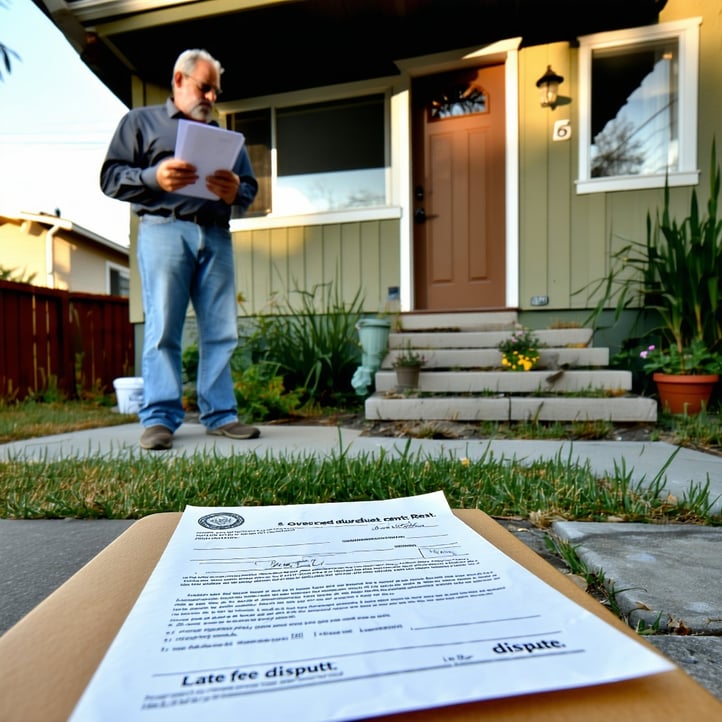Introduction: If you own a rental property in in Carlsbad, Encinitas, Oceanside, or anywhere in North County San Diego it’s critical to stay on top of new legislation that affects how you manage your properties. One of the most important updates in 2025 is Assembly Bill 2493 (AB 2493), a new law that directly changes the rules around charging application screening fees.
Effective January 2025, AB 2493 introduces stricter standards for how and when landlords can charge application fees, how those applications are processed, and what disclosures and refunds are required. In short, the way landlords used to handle rental applications may no longer be compliant.
Let’s walk through what’s changed and how to protect yourself from liability while still screening tenants effectively.
What Is AB 2493?
AB 2493 is an update to California Civil Code §1950.6. This law governs the collection and use of application screening fees the amount landlords charge prospective tenants to cover the costs of running background checks, credit reports, and verifying rental history.
Historically, landlords could charge a fee (adjusted annually for inflation, currently capped at just over $62 per applicant) as long as it didn’t exceed the actual cost of screening. That part hasn’t changed.
What has changed is that landlords must now choose one of two approved processes to legally collect that screening fee. The goal of the legislation is to protect applicants from paying for screenings that are never completed or were never seriously considered while still allowing landlords to cover legitimate costs.
Option 1: Structured First-Come, First-Served Screening
This option is ideal for landlords who want a highly structured and transparent screening process and who are comfortable following strict rules about application order.
Here’s what you must do under this method:
- Process applications in the order they’re received. No cherry-picking. You must evaluate each complete application in the order it was submitted.
- Provide written screening criteria up front. When the applicant applies, you’re required to disclose in writing what criteria will be used such as credit score minimums, income requirements, prior evictions, etc.
- Approve the first applicant who qualifies. If they meet your published standards, you must offer them the lease. You cannot skip ahead to the second or third-best applicant just because you like their profile more.
- Only collect screening fees when actively reviewing an application. You cannot charge someone a screening fee just to “hold their place in line.” The law requires that the fee be tied to actual review activity.
- Refund any duplicate screening fees. If you receive multiple applications at once and only review one, you must refund the screening fee within 7 days to any applicants whose applications weren’t reviewed—unless they authorize you to apply it to a different property.
Option 2: Flexible Review with Full Refunds
The second option allows you to review applications in any order and select the most qualified tenant based on your own criteria—including move-in timing, income-to-rent ratio, and communication responsiveness.
But there’s a catch:
- You must refund 100% of the screening fee to every applicant you don’t select. The refund must be issued:
- Within 7 days of selecting a tenant, or
- Within 30 days of receiving the application, whichever comes first.
Other Key Rules Under AB 2493
Even if you’re following one of the two approved screening methods, there are other new requirements to be aware of:
1. You can’t charge a screening fee if there’s no unit available.
Under AB 2493, it is illegal to charge an application fee unless there’s a current or soon-to-be-available rental unit. If you collect a fee and don’t have a unit available and don’t disclose that fact you could face a legal challenge.
The only exception is if the applicant signs a written agreement acknowledging that the unit is not currently available and still consents to pay the fee.
2. You must automatically provide a copy of the credit report.
Previously, applicants had to request a copy of the credit report you pulled as part of the screening process. Now, the law requires that landlords automatically send a copy within 7 days of receiving it by email, mail, or in person. This step promotes transparency and gives the applicant the opportunity to correct any inaccurate information that may have affected your decision.
3. Reusable screening reports are still allowed.
Some applicants may submit a reusable tenant screening report, which typically includes credit, background, and rental history. These are often created through services like RentSpree and are valid for 30 days.
AB 2493 does not eliminate the use of these reports. If an applicant provides one, and you agree to accept it, you may not charge a screening fee since you didn’t incur any screening costs.
How to Stay Compliant (and Out of Trouble)
With all these new rules in place, what should you do as a landlord?
Here’s a short checklist:
- Decide which screening process (structured or flexible) you will follow.
- Update your rental application to include written screening criteria.
- Make sure your lease and procedures align with AB 2493.
- Train your property management team on when screening fees can be collected or refunded.
- Implement a system for tracking when credit reports are run and when they are sent to applicants.
- Document all communication and decisions made during the screening process.
Failure to comply with AB 2493 could result in disputes, financial penalties, or fair housing violations.
Raintree Property Management Helps You Stay Compliant
At Raintree Property Management, we handle every step of the tenant screening process for our clients in Carlsbad, Encinitas, Oceanside, and throughout North County San Diego. We follow all state and federal housing laws, including AB 2493, to protect our property owners from risk.
Our process includes:
- Publishing consistent screening criteria
- Reviewing all applicants fairly
- Issuing timely refunds when required
- Automatically providing credit report copies
- Staying current on all legal updates
Get Support Today
Whether you’re managing a single property or a growing portfolio, AB 2493 adds another layer of compliance that landlords need to navigate. Don’t take chances with vague processes or outdated forms.
- If you’re unsure about your current screening policy, let us help. Click below to get a free rental analysis and learn how we protect your investment while staying 100% compliant.
👉 Request Your Free Rental Analysis




